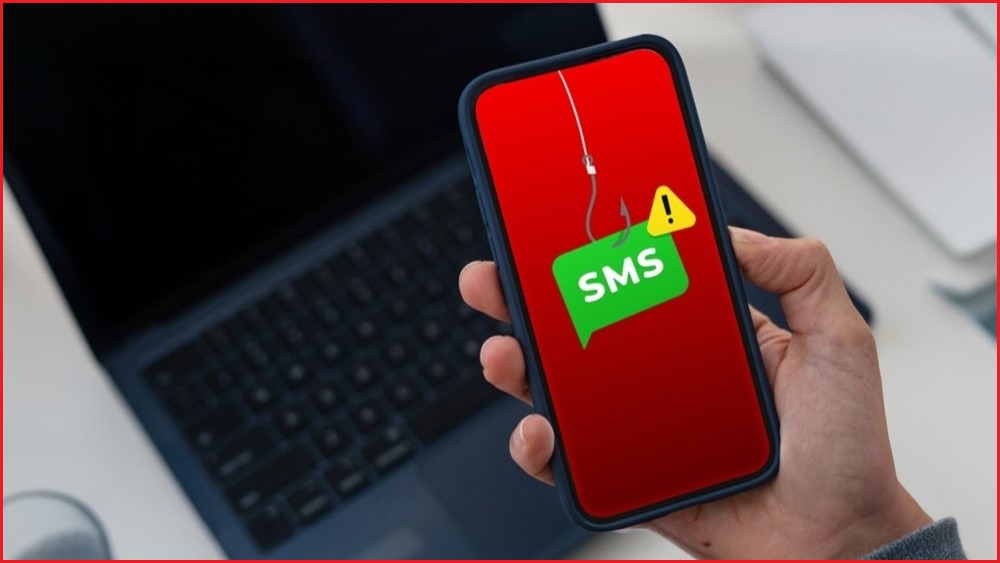The federal government has opted to make its anti-scams register mandatory and enforceable for telecommunications firms with hopes it will block millions of fake text messages each year.
The Labor government first announced plans in April last year for an SMS Sender ID Register, which will act as a filtering system to prevent scam text messages pretending to come from trusted brands such as banks or government entities such as myGov.
The register will involve the collation of a list of registered brand names that will be allocated approved tags and phone numbers.
If a scammer attempts to send a message pretending to be from one of the brands listed on the register, the telecommunications provider will have to check this against the registered number and block it if it does not match.
The 2023-24 federal budget provided $10 million over four years to the Australian Communications and Media Authority (ACMA) to stump up the registry.
Late last year, a pilot version of the register was launched involving the National Australia Bank, Commonwealth Bank, and Australian Taxation Office while ACMA consulted on whether the full scheme should be mandatory.
Communications Minister Michelle Rowland and Assistant Treasurer Stephen Jones this week confirmed the SMS Sender ID register will be mandatory for telcos.
ACMA will next year develop an enforceable industry standard to require these companies to check whether messages sent through their networks under a brand name match with the legitimate registered details of that brand.
If the system detects that the sender is not actually that trusted brand, ACMA will move to either block the message being sent entirely or include a warning along with it.
Rowland said the new register is an “important tool to protect hard-working Australians from increasingly sophisticated and organised scammers”.
“We’ve all received scam messages on our phones purporting to be from reputable sources – and it’s costing Australians millions of dollars every year,” Rowland said in a statement.
“This mandatory register will enable these messages to be blocked or flagged as a scam, better protecting consumers from being cheated.
A rise in dodgy texts
There has been a significant increase in scammers sending text messages to Australians purporting to be from the likes of Linkt, ANZ and myGov, with SMS now being the most commonly reported scam delivery method.
Australians have reported financial losses of $83 million this year alone due to scam calls and text messages, according to Scamwatch.
Jones said that once the register is up and running it is expected to block millions of messages annually.
“Scam text messages bombard Australians 24-7,” Jones said in a statement.
“The register will help to shut this down by disrupting the scammers’ business mode. The government’s crackdown on scams is already showing signs of success, but it is not job done.
“We continue to work to ensure Australians have the best protections against these predatory and criminal scams.”
The ministers said they expect the register to be up and running and open for registration of Sender IDs from late next year.
During the first half of next year ACAM will consult on the enforceable industry standard and put in place the systems and processes to run the register.
Banks welcome telco register
The enforceable register has been welcomed by the Australian Banking Association, which said it would be a “critical preventative measure in the fight against scammers”.
“This register will be crucial to stopping SMS impersonation scams in their tracks before they can cause harm to Australians,” Australian Banking Association CEO Anna Bligh said.
“By requiring telcos to block known scam SMS numbers, Australia will have a new weapon to disrupt a popular business model that scammers use.”
The federal government also has plans to hold the banks accountable for their customers getting scammed, with $14.7 million recently provided to create a clearer pathway for victims to access an external dispute resolution scheme in the banks, telco and social media sectors.
ACMA this week signed a cooperation agreement with its counterpart in the United Kingdom to combat phone scams, spam and unsolicited calls.
The deal will see the agencies provide mutual assistance and information-sharing around these issues.
The federal government has provided nearly $170 million to its war on scams in recent years, including the establishment of the National Anti-Scam Centre and the introduction of the Scams Prevention Framework.
Earlier this year, the government said there have been signs these tactics are succeeding, with the number of Australians are losing to scams almost halving in the year prior.










